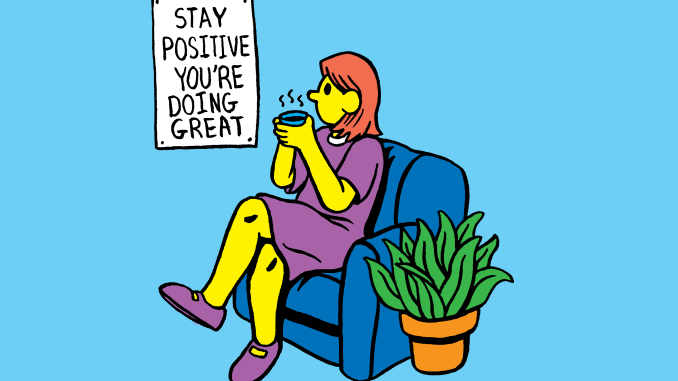
Working retail is often regarded as an introduction to the workplace – a taxing feat with numerous responsibilities, low pay and disrespectful customers – that everyone must endure at one point or another.
When I was a senior in high school, I spent three and a half months as a sales associate at a retail giant in the King of Prussia Mall. It was the most hypocritical environment I have ever experienced.
Their campaign and brand promoted a healthy, inclusive community of love and acceptance. The employees constantly smiled, seemingly happy to work there. However, the job was strenuous and the management constantly disregarded employees’ health, all on top of poor pay.
It felt like the management had little to no respect for employee’s lives outside of work and were uncommunicative. Although we provided times we could work, our availability was completely ignored when scheduling shifts – the managers picked what worked best for them.
About a month after I got hired, I was exposed to COVID-19. I immediately quarantined, got tested and called out of work for two shifts to ensure I didn’t unknowingly infect the entire office while waiting for my test result.
Soon after, I received a disdainful email from my supervisor saying I was inconveniencing the office, and they requested I come back in if I didn’t have symptoms. My manager was willing to risk my safety, the office’s safety and customers’ safety, which was especially disturbing during the height of a pandemic.
Supervisors cannot prioritize profits more than the well-being of employees.
During Ramadan, the month of fasting for Muslims, I requested a lighter schedule of one shift per week. Running around constantly, socializing and tending to customers would be too difficult to keep up while dehydrated and hungry.
My request was ignored. I was scheduled to work three days a week, and the timing of my shifts forced me to fast for 17 hours, rather than the typical 14. I was light-headed and on the brink of fainting every shift, but my concerns were tossed aside and disregarded. I felt unseen and disrespected.
I began to make myself small and do everything I was told without question so as not to be considered a difficult employee. Putting aside any issues and concerns I had, I hoped management would respect me if they saw how unproblematic, flexible and dedicated I was.
These habits seeped into my personal life. I became a people-pleaser, and was afraid to upset or contradict anyone. I would go out of my way to help others, make their lives easier and do things for them regardless of whether I had the time or energy to do so.
About three months into my time working there, someone who assaulted me at school walked past me while I was at work. I immediately began to cry, and I felt like I couldn’t breathe.
As I approached my manager to speak with them about the situation, I was met with looks of annoyance and aggravation. I explained what happened and said I needed to go home because I felt unsafe. They stopped trying to hide their disinterest, looking bored with their arms crossed and heads tilted to the side.
I called out of work the next day because this incident left me distraught. My supervisor, however, was rude and unpleasant. She kept pushing me to come in, saying I was overreacting and needed to stop thinking about only myself.
After calling out, I was ignored by each supervisor, as if I didn’t exist to them. Questions I asked needed to be repeated until I got a curt, unsatisfying response. Laughter and conversation stopped as soon as I entered the room.
I felt isolated and embarrassed. Their outright disrespect and lack of empathy was appalling. I felt like I was being punished for putting my mental health first, and no job is worth sacrificing that.
I quit a week later.
Toxic workplaces like these create an environment that is unhealthy for the employees and condition them to prioritize their job over all else. Employer’s priorities must shift from focusing solely on profit at the expense of workers to treating employees with decency and respect. Things like how employers react to time-off requests, especially when concerning health and family emergencies, matter.
Employees need to stand up for themselves and realize that being treated badly in the workplace is unfair. Wearing employees down until we have nothing more to offer to anyone, much less their place of employment, only leads to burnout.
I wish I had stood up for myself earlier, and not allowed myself to stay in such a toxic environment. But now I understand that it wasn’t OK, and know how to better manage such harsh environments in the future.



Be the first to comment